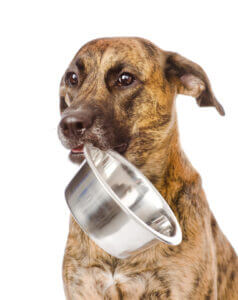Daylight Saving Time begins this Sunday and while we’re all ready for sunlight to stretch further into the evening giving us the tease that summer is now approaching, how does the time change affect our pets?
Daylight Saving Time, a Brief History
This is done to take advantage of additional sunlight during the summer as one hour is moved from the morning to the evening. The closer you live to the equator means the less change you’ll see as summer and winter peak. If you live closer to the poles more light will stay in the sky as the summer and winter solstice occurs. According to some sources, Daylight Saving Time saves energy. While the percentage may be small, around 1%, it’s not insignificant as that adds up to massive savings over time. With more light into the evening, less energy is used on home appliances and electricity.
The idea was first thought up by none other than Benjamin Franklin. He wrote an essay called, “An Economical Project for Diminishing the Cost of Light,” and thought of the idea as a way to save candle usage.
The idea was implemented slowly over time and throughout the world until we have what we have today.
Dogs
With the exception of Arizona and Hawaii, come 2am this Sunday we will be moving our clocks forward, remember, “Spring Forward” and “Fall Back,” or in our case, “Fall Bark.” Yes, technically we lose an hour, but it’s not necessarily an hour of sleep. If we wake up naturally with no alarm clock, then we slept the amount of time we were going to sleep. However, if we set an alarm and are woken up at a scheduled time, then yes, an hour of sleep will be lost. But don’t mourn it too long, you will eventually get it back.
The science we need to remember here is about the Circadian Rhythm. As defined on ScienceDaily.com, “A circadian rhythm is a roughly 24 hour cycle in the physiological processes of living beings, including plants, animals, fungi and cyanobacteria. In a strict sense, circadian rhythms are endogenously generated, although they can be modulated by external cues such as sunlight and temperature. Circadian rhythms are important in determining the sleeping and feeding patterns of all animals, including human beings. There are clear patterns of brain wave activity, hormone production, cell regeneration and other biological activities linked to this daily cycle.”
Us as pet parents know that something is amiss. We can read a clock–we’re the ones that changed them–unlike our pets that can’t tell time by looking at a clock. To them, something instinctual is off. They are creatures of habit, as are some of us pet parents. It shouldn’t be a shock to you that your dog won’t be adjusted after the Daylight Saving Time change. If they’re used to going on your morning run with you at 6am, they’ll be ready to go before you, urging you on. (Is that really a bad thing?) However, anticipate role reversal in autumn where you’re ready to go and your dog is still sound asleep dreaming of bacon and dirty socks.
The same may occur if their meal is always served at the same time. They’ll not eat it right away if their rhythm is off and it feels as though they are being fed early. Of course, some, if not most dogs will eat whatever is in front of them, whenever it is in sight. Just don’t be put off if your pet doesn’t nibble his kibble and bits right away.
From pethealthnetwork.com, “Dogs are creatures of light. That is, animals are closely tuned to the cycles of light and dark in terms of their physiology and behavior. Dogs tend to wake when the sun rises and sleep after sunset. Many dogs have precise patterns; they do the same things at the same time every day like clockwork.”
What we want you to remember is that Daylight Saving Time does directly affect your dog and your own behavior reacting to the time change influences your pets. Stay aware and plan appropriately to avoid anxiety and confusion within your pets.
Enjoy the extra light and warmth!




